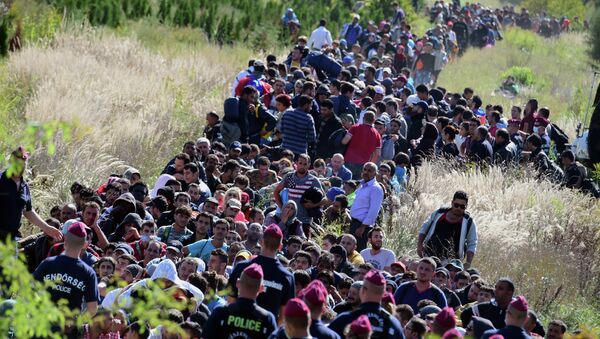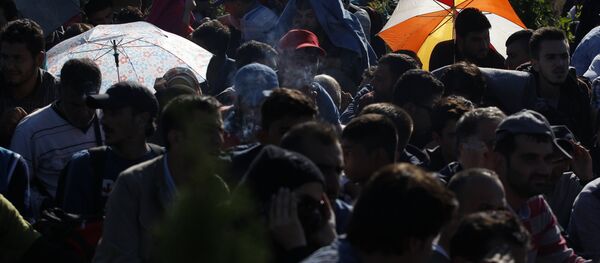Belgrade and Zagreb exchanged mutual threats and embargoes this week as refugees flooded both countries.
That’s after Hungary closed its border with Serbia to asylum seekers, forcing people to search for new routes to wealthy European states through neighboring Croatia.
Nearly 50,000 refugees have crossed the country’s border via Serbia in a little over a week.
While Croatian authorities say they cannot cope with the uncontrollable surge of refugees and have called for Serbia to stop sending migrants across their common border, Serbia is accusing Croatia of racist policies and discrimination.
Sputnik discussed the matter with Srdja Trifkovic – a political analyst and Foreign Affairs Editor of the US monthly magazine Chronicles.
“The decision by Croatian PM [Zoran] Milanovic to close the border practically to all traffic was truly extraordinary and he sounded almost paranoid when he accused Serbian MP [Alexander] Vucic of acting in cahoots with Hungarian Premier Viktor Orban and Croatian opposition leader Tomislav]Karamarko,” Srdja Trifkovic said.
“Serbia responded by blocking all incoming traffic from Croatia. This has created tension reminiscent of the early 1990s and also raised in Serbia the spectrum of the racist policies of the Croatian Nazi regime during WW2…”
Trifkovic said that by closing the border Croatia stemmed the flow of migrants, but only temporarily because the buildup in Serbia was also unsustainable.
The country simply lacks the infrastructure to take care of the additional thousands arriving from Greece and Macedonia.
Srdja Trifkovic said he believed that resistance to the influx of migrants will eventually increase in the old European countries which now welcome the migrants, many of whom are unwilling to adapt to European cultural ways and norms…
"Most of the people crossing to Lampeduza come from sub-Saharan Africa, and if they are put in the same category as regular refugees this would create huge security problems for the host countries because even if only a few of these people are jihadist-minded, this would create new hotbeds of extremism in the heart of Europe,” Srdja Trifkovic said in conclusion.



